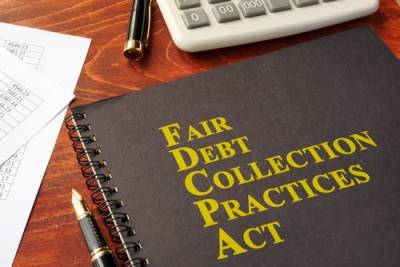 312-704-0771
312-704-0771
Can a Creditor Freeze or Seize Funds From a Debtor’s Bank Accounts?
 If you are a creditor and are owed money by a debtor, you may have several options for collecting on a judgment that you have obtained in court. While wage garnishment is a common way to collect judgments, other options may be available, including using non-wage garnishments to seize money from a person's bank accounts. In these situations, it is important to follow the correct steps to ensure that the money owed can be collected.
If you are a creditor and are owed money by a debtor, you may have several options for collecting on a judgment that you have obtained in court. While wage garnishment is a common way to collect judgments, other options may be available, including using non-wage garnishments to seize money from a person's bank accounts. In these situations, it is important to follow the correct steps to ensure that the money owed can be collected.
How Does a Creditor Seize Funds From a Debtor's Bank Accounts?
To collect money from a debtor's bank accounts, a creditor must serve a garnishment summons to the garnishee (the bank or financial institution). The garnishment summons and a garnishment notice will also be served to the debtor. The summons will include interrogatories asking the garnishee to provide information about the debtor's assets. After receiving the summons, the bank will be required to freeze the debtor's accounts, preventing them from withdrawing any funds until the case has been resolved. The summons will specify a "return date" by which the bank will be required to submit answers to the interrogatories. The bank must file an answer by this date unless they received the summons within 10 days before the return date, in which case they will have 14 days after the return date to respond.
The garnishment notice will specify the amount of the judgment against the debtor, and it will inform the debtor that they have the right to request a hearing to dispute the garnishment. The debtor must request a hearing before the return date specified on the summons.
Can a Creditor Take All of a Debtor's Assets?
A court order authorizing asset seizure can only specify a certain dollar amount that can be seized from the debtor's accounts. The creditor cannot recover more than what is specified in the court order. It is also important to note that certain exemptions will apply to the assets that may be seized. A debtor can receive an exemption for up to $4,000 of personal property, including the money in bank accounts. They may also receive exemptions for Social Security benefits and other types of public benefits they have received, proceeds from life insurance policies, workers' compensation benefits, disability benefits, unemployment benefits, veteran's benefits, child support or spousal maintenance payments, retirement or pension benefits, awards received as the victim of a crime, or up to $15,000 of an award from a personal injury lawsuit or settlement. A creditor may be able to seize any non-exempt funds in a bank account.
What Happens if a Debtor Withdraws Funds Before a Garnishment Takes Place?
If a debtor withdraws money from an account before it is frozen, it may be more difficult for a creditor to recover those assets. However, a creditor may use a citation to discover assets to gain information about money or property that is in a debtor's possession, and they may seek a non-wage garnishment order that will allow them to seize any non-exempt assets in order to collect a judgment that is owed.
Contact Our Chicago Judgment Collection Lawyers
Creditors have many rights when it comes to collecting debts owed to them. After receiving a judgment against a debtor, a creditor will want to explore their options, including determining whether wage garnishments may be used or whether non-wage garnishments may be available. If you are a creditor who is looking to collect money owed by a debtor, the Cook County debt collection attorneys at 312-704-0771 can ensure that you follow the correct procedures and meet all applicable legal requirements. Contact us at 312-704-0771 to learn how we can assist you with matters related to debt collection and creditors' rights.
Sources:
https://www.ilga.gov/legislation/ilcs/ilcs4.asp?DocName=073500050HArt.+XII+Pt.+8&ActID=2017&ChapterID=56&SeqStart=93100000&SeqEnd=95200000
https://services.cookcountyclerkofcourt.org/Forms/Forms/pdf_files/CCG0647.pdf
https://services.cookcountyclerkofcourt.org/Forms/Forms/pdf_files/CCG0646.pdf






